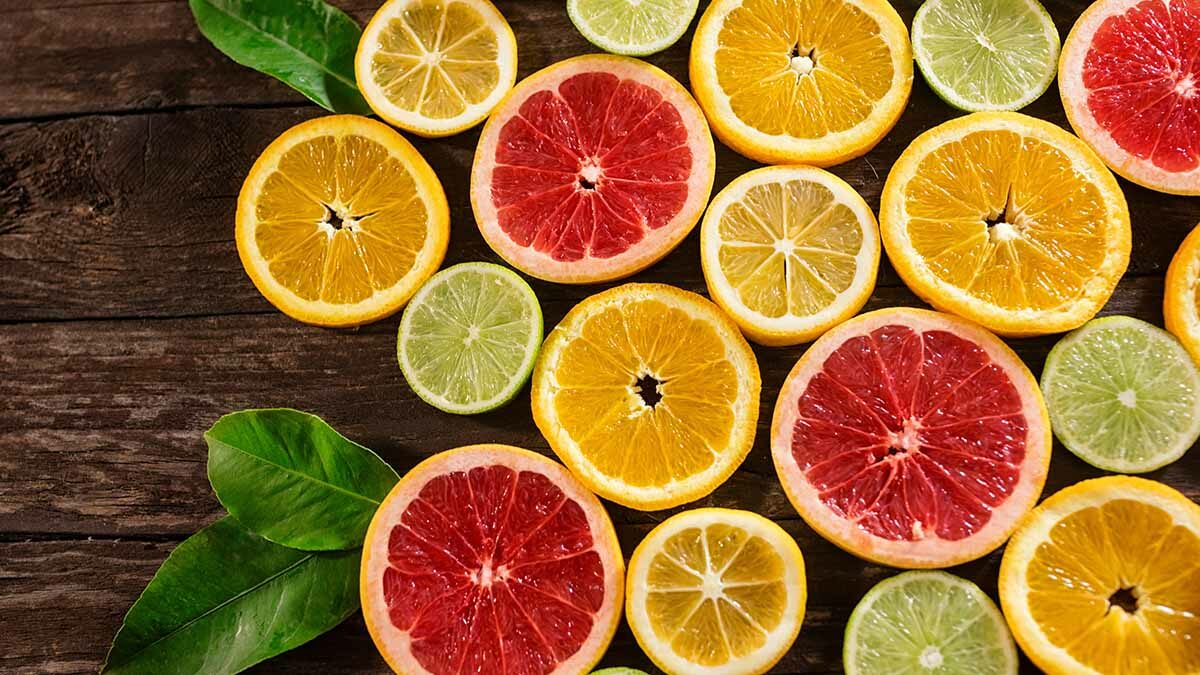In 1936, Albert Szent-Györgyi, who won the Nobel Prize for discovering vitamin C, described a vitamin “P,” which we now know encompasses a class of thousands of phytonutrients called flavonoids. Some, like quercitin, are widespread in plant-based foods. We can tell something is widespread in the plant kingdom when one can even find it in iceberg lettuce!
Others, however, are only found in specific plant families. For example, hesperidin is found primarily in citrus fruits. This may be one of the reasons that, out of all the different types of fruit that have been looked at, citrus may cut our risk of stroke the most.
The citrus phytonutrient hesperidin increases blood flow. Using a machine called a Doppler fluximeter (sounds like something from Back to the Future) one can measure blood flow through the skin using a laser beam. When researchers give people the amount of hesperidin found in two cups of orange juice, blood flow goes up. It works even better when they gave them the orange juice itself, so there’s other beneficial stuff besides just the hesperidin in citrus.
For example, if we measure the changes in genetic expression, orange juice consumption induces changes in the expression of 3000 of our genes, whereas hesperidin alone only modulated the expression of about 2000. Still, the fact that nearly 2000 stretches of our DNA expressed differently because we consumed just one of the thousands of phytonutrients in plants is pretty mind-blowing.
These changes in blood flow are not just in theory. Researchers took volunteers with cold sensitivity (cold hands and feet), put them in an air-conditioned room and measured the temperature of their fingertips after drinking a placebo drink (like orange Kool-Aid) versus drinks with two doses of actual citrus phytonutrients. In the Kool-Aid group, their fingers got colder and colder, dropping nearly nine degrees Fahrenheit. The fingers of those consuming low or high doses of citrus didn’t get nearly as cold because their blood flow remained steady. In my video, Keeping Your Hands Warm with Citrus, we can see the laser test of the subject’s blood flow. When we’re exposed to cold temperatures our body starts to clamp off peripheral blood flow to keep our core warm, but if we eat a bunch of oranges before we go skiing our risk of frostbite may go down since we’re keeping up our blood flow to our fingers and toes.
They even took these poor women and plunged their hands into some chilly water, and their finger temperature rebounded faster towards normal in the citrus group, demonstrating that citrus phytonutrients not only keep our extremities warmer but may also warm us back up faster.
But don’t forget, don’t brush your teeth immediately after consuming citrus. We have to make sure to rinse our mouth with water and wait 30 minutes before brushing to protect our tooth enamel (see Plant-Based Diets: Dental Health).
Because different families of fruits and vegetables can have entirely different phytonutrient profiles, variety is important. See, for example:
- Constructing a Cognitive Portfolio
- Garden Variety Anti-Inflammation
- Apples and Oranges: Dietary Diversity
- Fighting Inflammation with Food Synergy
Eating oranges is always better than drinking orange juice, as seen in my video Reducing Muscle Fatigue with Citrus.
-Michael Greger, M.D.
PS: If you haven’t yet, you can subscribe to my videos for free by clicking here and watch my full 2012 – 2015 presentations Uprooting the Leading Causes of Death, More than an Apple a Day, From Table to Able, and Food as Medicine.
